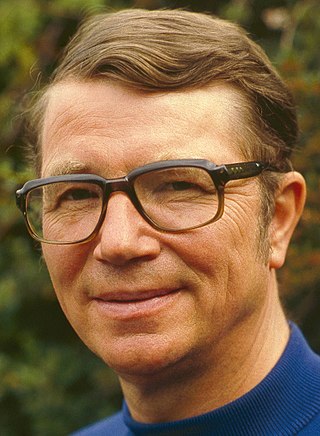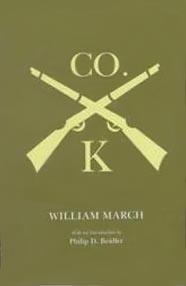Related Research Articles

Damon Francis Knight was an American science fiction author, editor, and critic. He is the author of "To Serve Man", a 1950 short story adapted for The Twilight Zone. He was married to fellow writer Kate Wilhelm.
The "angry young men" were a group of mostly working- and middle-class British playwrights and novelists who became prominent in the 1950s. The group's leading figures included John Osborne and Kingsley Amis; other popular figures included John Braine, Alan Sillitoe, and John Wain. The phrase was originally coined by the Royal Court Theatre's press officer in order to promote Osborne's 1956 play Look Back in Anger. It is thought to be derived from the autobiography of Leslie Paul, founder of the Woodcraft Folk, whose Angry Young Man was published in 1951.

Colin Henry Wilson was an English writer and novelist. He also wrote widely on true crime, mysticism and the paranormal, eventually writing more than a hundred books. Wilson called his philosophy "new existentialism" or "phenomenological existentialism", and maintained his life work was "that of a philosopher, and (his) purpose to create a new and optimistic existentialism".
This article contains information about the literary events and publications of 1957.
John Barrington Wain CBE was an English poet, novelist, and critic, associated with the literary group known as "The Movement". He worked for most of his life as a freelance journalist and author, writing and reviewing for newspapers and the radio.

The National Laboratory of Psychical Research was established in 1926 by Harry Price, at 16 Queensberry Place, London. Its aim was "to investigate in a dispassionate manner and by purely scientific means every phase of psychic or alleged psychic phenomena". The honorary president was Lord Sands, K.C., LL.D., acting president was H. G. Bois, and the honorary director was Harry Price. In 1930 the Laboratory moved from Queensberry Square, where it had been a tenant of the London Spiritualist Alliance to 13 Roland Gardens. In 1938, its library was transferred on loan to the University of London.
Yaldabaoth, otherwise known as Jaldabaoth or Ialdabaoth, is a malevolent God and creator of the material world in various Gnostic sects and movements, sometimes represented as a theriomorphic, lion-headed serpent. He is identified as the Demiurge and false god who keeps the souls trapped in physical bodies, imprisoned in the material universe.
Valentinianism was one of the major Gnostic Christian movements. Founded by Valentinus in the 2nd century AD, its influence spread widely, not just within Rome but also from Northwest Africa to Egypt through to Asia Minor and Syria in the East. Later in the movement's history it broke into an Eastern and a Western school. Disciples of Valentinus continued to be active into the 4th century AD, after the Roman Emperor Theodosius I issued the Edict of Thessalonica, which declared Nicene Christianity as the State church of the Roman Empire.
Donald Michael Thomas was a British poet, translator, novelist, editor, biographer and playwright. His work has been translated into 30 languages.

The Outsider is a 1956 book by English writer Colin Wilson.

Krishnamurti's Notebook is a diary of 20th-century Indian philosopher Jiddu Krishnamurti (1895–1986). Written during 1961–62, it was first published in book form in 1976; an expanded edition was published in 2003. The work, which includes first hand accounts of persistent, unusual physical experiences and states of consciousness, has been called "a remarkable mystical document" in press reports; an authorized Krishnamurti biographer described it as containing "the whole essence" of his philosophy.

The First and Last Freedom is a book by 20th-century Indian philosopher Jiddu Krishnamurti (1895–1986). Originally published in 1954 with a comprehensive foreword by Aldous Huxley, it was instrumental in broadening Krishnamurti's audience and exposing his ideas. It was one of the first Krishnamurti titles in the world of mainstream, commercial publishing, where its success helped establish him as a viable author. The book also established a format frequently used in later Krishnamurti publications, in which he presents his ideas on various interrelated issues, followed by discussions with one or more participants. As of 2022 several editions of the work had been published, in print and digital media.

Company K is a 1933 novel by William March, first serialised in parts in the New York magazine The Forum from 1930 to 1932, and published in its entirety by Smith and Haas on 19 January 1933, in New York. The book's title was taken from the Marine company that March served in during World War I. It has been regarded as one of the most significant works of literature to come out of the American World War I experience, and it is the most reprinted of all March's work.
Bill Hopkins was a Welsh novelist and journalist who has been grouped with the angry young men. His father was Ted Hopkins, a popular stage performer; his mother was Violet Brodrick.
Thomas Michael Maschler was a British publisher and writer. From 1960, he was influential as the head of publishing company Jonathan Cape over a period of more than three decades. Maschler was noted for instituting the Booker Prize for British, Irish and Commonwealth literature in 1969. He was involved in publishing the works of many notable authors, including Ernest Hemingway, Joseph Heller, Gabriel García Márquez, John Lennon, Ian McEwan, Bruce Chatwin and Salman Rushdie.

Jiddu Krishnamurti or J. Krishnamurti, was a writer and speaker on philosophical and spiritual issues including psychological revolution, the nature of the mind, meditation, human relationships, and bringing about positive social change. He came to early prominence thanks to claims, made on his behalf, that he was to be a Messiah. As a young man he repudiated these claims and declared himself unbound by any tradition or philosophy. He spent the rest of his life presenting a uniquely expressed philosophy of life around the world in talks, discussions, and writings.
This is a bibliography of works by Colin Wilson.

The Divine and the Decay is a 1957 novel by the Welsh writer Bill Hopkins. It was republished as The Leap, in 1984. It tells the story of the leader of a British right-wing populist party who has decided to have his internal rival assassinated. To provide an alibi for himself he stays on a small Channel Island, where he becomes fascinated by a very self-possessed young woman. It was Hopkins' first and only published novel.

Declaration is a 1957 anthology of essays by British writers. It was edited by Tom Maschler and published by MacGibbon & Kee. It features short essays by Doris Lessing, Colin Wilson, John Osborne, John Wain, Kenneth Tynan, Bill Hopkins, Lindsay Anderson and Stuart Holroyd. The book is closely associated with the angry young men movement, and the essays are presented as "credos" or manifesto of the writers.

Emergence from Chaos is a 1957 book by the English writer Stuart Holroyd. In the first part of the book, Holroyd discusses different types of spirituality, while in the second part—roughly two thirds of the book—these distinctions are used to analyse the works of six different poets, each of whom reacted to the issues of modernity with his own spiritual vision. The book was Holroyd's debut and is associated with the phenomenon of the Angry Young Men.
References
- 1 2 Contemporary Authors (Thomson Gale, 1 January 2004)
- ↑ Holroyd, Stuart (1959). Flight and Pursuit. London: Victor Gollancz Ltd.
- ↑ Kalliney, Peter (2006). The Oxford Encyclopedia of British Literature. Oxford University Press. ISBN 0-19-516921-2.
- ↑ Maschler, Tom, ed. (1957). Declaration. London: MacGibbon and Kee.
- ↑ Ratcliffe, Michael. "Angry young men (act. 1956–1958)". Oxford Dictionary of National Biography. Retrieved 4 May 2012.
- ↑ "Sloane Square Stomp", Time, Monday, 24 March 1958
- ↑ Holroyd, Stuart (1975). Contraries: A Personal Progression. London: The Bodley Head Ltd.
- ↑ His Dear Time's Waste, Pronoia, 2013: introduction,